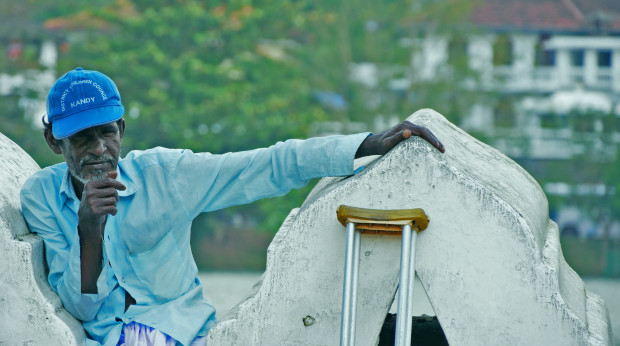
FAQ
Who is GPPAC?
GPPAC (pronounced ‘gee-pak') stands for the Global Partnership for the Prevention of Armed Conflict. We are a global member-led network of civil society organisations (CSOs) actively working on conflict prevention and peacebuilding. We officially launched in 2005 our Global Action Agenda during a worldwide conference at the United Nations headquarters in New York. Our network is organised around 15 regional networks with their own priorities, character and agenda. These regional networks are represented in the International Steering Group, a committee that jointly determines our global priorities and actions. To see who we are, click here. GPPAC has become the first truly global network of civil society organisations that work towards conflict prevention and peacebuilding. We have established networks in areas where none existed before. We are led by peacebuilders who are key players in their own communities and who are best placed to work towards conflict prevention and peace.
What does GPPAC do?
Our mission is to achieve a global shift in peacebuilding - From solely reacting to violent conflict to preventing conflict. To do this, we work for collaboration between different groups – civil society, academia, media and decision makers. We want to see local ownership of strategies for peace and security. Together, we hope to enhance the efforts that the members of our network are already undertaking, but also to become stronger by speaking with one voice. Our mission takes shape through different projects ranging from expert meetings on human security, developing issue-papers on early warning and early response, organising media trainings, sending lobby delegations to New York and Washington DC and bringing together members from different regions around the world.
What is conflict prevention?
Violent conflict is a human choice. Conflict prevention is a choice to take alternative, non-violent means to resolving conflicts. It is to ensure mechanisms are in place for people to choose from which provide space for conflicting sides to come together and agree on how to resolve differences peacefully. Armed conflicts are almost always rooted in long-standing and complex issues. This makes conflict prevention a slow and difficult process.
Why conflict prevention?
We believe conflict prevention is more cost effective than intervening after violence has broken out. It is less costly in terms of human lives and suffering, as well as in economic and social development. Just like when we tackle disease, prevention is always the most effective cure.
Is conflict always bad?
Conflict is a normal behaviour that may develop when two or more individuals or groups have competing goals or needs. If conflict is managed peacefully, it can be a positive drive for development, but when it's not managed the right way, it can quickly descend into violence.
Does GPPAC stop working after a conflict has broken out?
We take a broad definition of conflict prevention and do not believe violent conflicts have a clear beginning or a clear end. Our work encompasses peacebuilding, reconciliation, disarmament and much more. For this reason, when a violent conflict breaks out, our work doesn't stop, but changes.
Code of Conduct and Integrity
GPPAC is committed to fostering a positive and supportive work environment for all staff members including interns, volunteers, and exchange staff from partner organisations. At GPPAC we wish to have a safe, and harmonious work environment free from discrimination on any ground and from any harassment at work including sexual harassment. Therefore, GPPAC operates a zero-tolerance policy for any form of discrimination, harassment or bullying. Reported grievances will be taken seriously.
To achieve and maintain a professional and positive work environment, GPPAC staff must adhere to the attitudes and behaviour as well as to the norms for engaging with its partners and any other external party as described in the GPPAC Code of Conduct.
A person who wishes to report any unwelcome behaviour or suspected violation of integrity by a person representing GPPAC can confidentially contact GPPAC’s Integrity Officer via integrity@gppac.net.
For complaints about GPPAC’s activities or work, please get in touch with us via info@gppac.net.
